- Trending:
- Pope Leo Xiv
- |
- Israel
- |
- Trump
- |
- Social Justice
- |
- Peace
- |
- Love
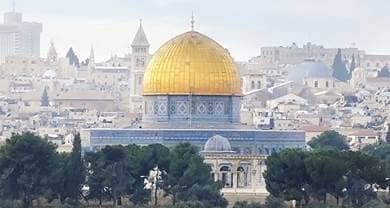
RELIGION LIBRARY
Islam
Modern Age
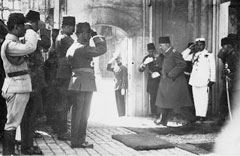 In the late 18th and 19th centuries, European nations were engaged in an aggressive and competitive campaign to secure new territories and new markets. In this age of European imperialism, certain key areas of the Muslim world attracted increased European attention. The European nations expanded their influence and established colonies in the Middle East, Africa, and India. When the Ottoman Empire collapsed in defeat in 1918 at the end of World War I, France and Great Britain assumed control of the Ottoman Empire's Middle East and north African territories.
In the late 18th and 19th centuries, European nations were engaged in an aggressive and competitive campaign to secure new territories and new markets. In this age of European imperialism, certain key areas of the Muslim world attracted increased European attention. The European nations expanded their influence and established colonies in the Middle East, Africa, and India. When the Ottoman Empire collapsed in defeat in 1918 at the end of World War I, France and Great Britain assumed control of the Ottoman Empire's Middle East and north African territories.
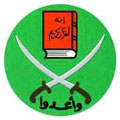 In the 19th century, in response to the political and economic challenges of European imperialism, a number of schools of Islamic thought emerged that included important political and social components. Called Islamic revivalist movements, these schools, such as the Wahhabi movement in Arabia and the Mahdi movement in Sudan, were concerned that Islamic society appeared to be in decline. While not necessarily agreeing in the details, they shared a conviction that returning to careful adherence to the Quran and the sunnah would restore independence and influence to Islamic societies.
In the 19th century, in response to the political and economic challenges of European imperialism, a number of schools of Islamic thought emerged that included important political and social components. Called Islamic revivalist movements, these schools, such as the Wahhabi movement in Arabia and the Mahdi movement in Sudan, were concerned that Islamic society appeared to be in decline. While not necessarily agreeing in the details, they shared a conviction that returning to careful adherence to the Quran and the sunnah would restore independence and influence to Islamic societies.
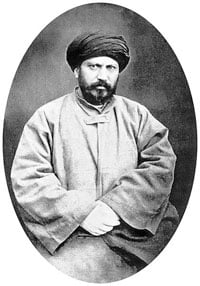 In the 20th century, Muslims struggled with the political and economic challenges presented by European colonialism and imperialism, and with the intellectual and moral challenges presented by a rapidly-changing world of nationalism, secularism, anti-colonial struggles, and the Cold War. Two very different hypotheses found wide appeal among Muslims. Some, such as the Muslim Brotherhood, built on the revivalist teachings of the 19th century and argued for a return to Islamic traditions. Finding wide support among the working and impoverished classes of Muslims, they taught that Islam is a positive alternative to the modern world, which had left so many behind.
In the 20th century, Muslims struggled with the political and economic challenges presented by European colonialism and imperialism, and with the intellectual and moral challenges presented by a rapidly-changing world of nationalism, secularism, anti-colonial struggles, and the Cold War. Two very different hypotheses found wide appeal among Muslims. Some, such as the Muslim Brotherhood, built on the revivalist teachings of the 19th century and argued for a return to Islamic traditions. Finding wide support among the working and impoverished classes of Muslims, they taught that Islam is a positive alternative to the modern world, which had left so many behind. 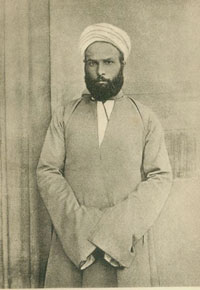 They led reformist movements that advocated for an Islamic system of government. Many of them spent time in prison for their political leadership and publications, particularly in Egypt and Syria.
They led reformist movements that advocated for an Islamic system of government. Many of them spent time in prison for their political leadership and publications, particularly in Egypt and Syria.
Others advocated a search for a positive synthesis with the modern world, arguing that Islam can and should be reinterpreted in light of modern issues and concerns. In their writing, they built bridges between the traditional teachings of Islam and the modern challenges of secularism, nationalism, multiculturalism, and democracy. These modernists—such as Jamal al-Din al-Afghani, Muhammad Abduh, Qasim Amin, 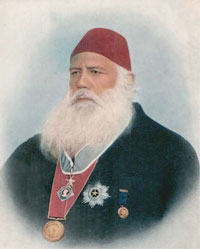 Sayyid Ahmad Khan, and Muhammad Iqbal—were popular with the educated classes of the Middle East and south Asia.
Sayyid Ahmad Khan, and Muhammad Iqbal—were popular with the educated classes of the Middle East and south Asia.
In the 1950s and 1960s, most of the Muslim world won independence from the European colonial powers. Many of the newly-independent states had not existed in their present forms prior to European intervention, including Lebanon, Syria, Sudan, Jordan, Iraq, and Pakistan. Pursuing their own interests, the European powers had created these states by drawing artificial borders on maps and appointing European allies as rulers. 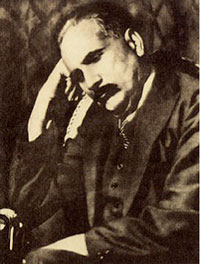 As a result, the anti-colonial struggle was replaced by another prolonged struggle, this time over national identity and political legitimacy. Who is Lebanese, and who is Syrian? Who is Pakistani, and who is Indian? Should the Arabs all be unified into one state? Why should former colonies continue within national borders imposed from London or Paris? Who is responsible for the Palestinians? Who has the right to lead the countries, and how should the leader be chosen? Struggles to find consensus on the answers to these intractable questions were conducted in the context of the Cold War and the American and Soviet tendencies to conduct that war by proxy, in a strategy the United States called "low-intensity warfare." As a result, political conflict was frequently conducted through wars instead of public debate, with a bewildering number of local and foreign interests influencing critical national events.
As a result, the anti-colonial struggle was replaced by another prolonged struggle, this time over national identity and political legitimacy. Who is Lebanese, and who is Syrian? Who is Pakistani, and who is Indian? Should the Arabs all be unified into one state? Why should former colonies continue within national borders imposed from London or Paris? Who is responsible for the Palestinians? Who has the right to lead the countries, and how should the leader be chosen? Struggles to find consensus on the answers to these intractable questions were conducted in the context of the Cold War and the American and Soviet tendencies to conduct that war by proxy, in a strategy the United States called "low-intensity warfare." As a result, political conflict was frequently conducted through wars instead of public debate, with a bewildering number of local and foreign interests influencing critical national events.
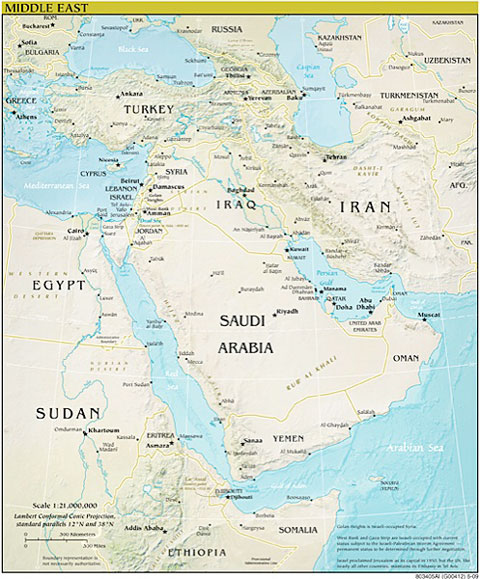
In this context, Islamic revivalists and Islamic liberal modernists competed with communist and other secular nationalist movements. Many Muslims who participated in and defended Islamic culture and practices nonetheless argued on behalf of the modern thesis of separation of religious and state functions, and for democracy founded in universal suffrage. They too joined political parties and social movements and campaigned for secular, national democracies. Secular governments neglected the role of Islam in the public life of Muslim societies and jailed Islamic revivalists and secular nationalists alike, because of the different challenges they presented to these governments. Many Muslim countries became one-party states or military regimes, or a combination of both. Political repression and uneven economic development contributed to growing popular unrest.
The combination of foreign interference, grinding poverty, political repression, and violence has led many Muslims to turn to Islam as their best hope for liberation, peace, security, health, and prosperity. The devastating effects on families of ongoing violence have caused particularly powerful grievances. Corrupt regimes, failed states, and the marginalization of Muslim immigrant populations in Europe have recently led some to seek more radical solutions to ongoing despair and repression through a more globalized Muslim community that transcends the boundaries of nation-states (e.g., al-Qaeda).
Islamic revivalism has become a powerful force in Muslim politics, present in nearly every Muslim country. At its heart is a belief that the politics of the 20th century have failed Muslims, and that a full return of Islam to the center of personal and public life will restore Muslim power and influence, and bring health and welfare to Muslim societies. To this end, Islamic organizations are active in social services, education, publishing and broadcasting, and economics. Meanwhile, secular Muslims work just as hard to achieve the same goals for their families and fellow Muslims. It remains to be seen how peace will be achieved.
Study Questions:
1. When did the Islamic revivalist movement begin? Why did it start?
2. Does Islam take a separatist stance from the modern world?
3. Why did Muslims continue to struggle with identity creation, even after “defeating” colonialism?










